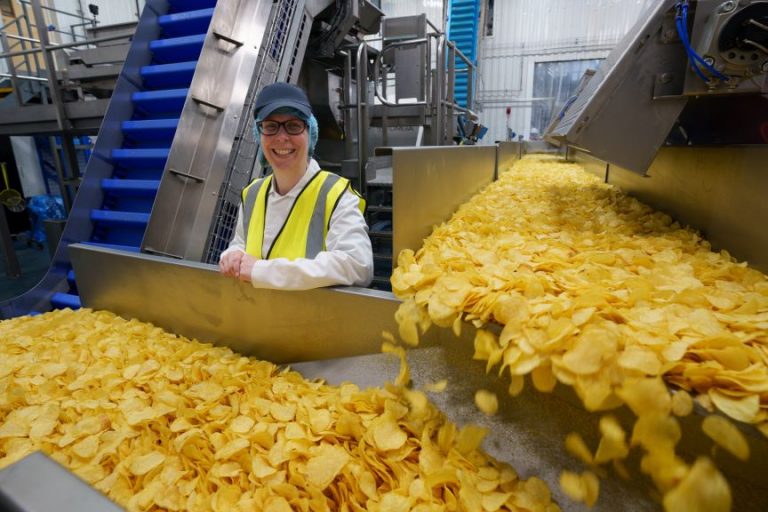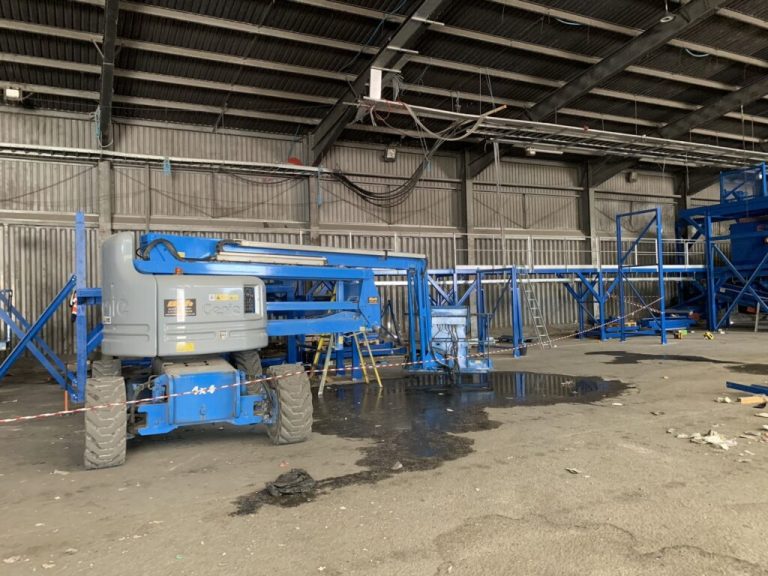‘Could do better’: FSB verdict on HMRC’s customer service performance
Firms urged to continue carbon reporting in the wake of Government’s regulatory rule change
East Midlands accountancy and business advice practice Duncan & Toplis is urging employers to continue carbon reporting after proposed regulatory changes come into effect.
In March, the UK government published suggested changes to company size limits that will impact 131,000 companies nationwide by changing auditing thresholds and other reporting requirements, including carbon reporting obligations.
These changes could see 5,000 large companies reclassified as medium-sized, 13,000 medium-sized companies reclassified as small and 113,000 small companies reclassified as micro-entities.
While the reforms aim to reduce the non-financial reporting obligations for businesses, Duncan & Toplis is warning that companies could be at substantial risk if they don’t maintain existing obligations around sustainability.
Stuart Brown, Director and Head of Technical and Compliance at Duncan & Toplis said: “At first glance, businesses may think that the government’s changes to company size are an easy win that would simplify auditing and annual reporting – but there’s more to it than initially meets the eye.
“The proposed reclassification would mean that thousands of currently ‘large’ companies can take advantage of eased requirements to cut their admin spend, but it also means that thousands of businesses will no longer be required to report their carbon emissions to the government – as this only applies to large companies. This could prove especially problematic for companies that are effectively downsized by the move, potentially extending as far as limiting their access to loans if they cease their carbon reporting.”
The move has been projected to save £150 million per year for UK companies and while, on the surface, this will reduce the regulatory burden on thousands of companies, there may well be unintended consequences. The company highlights that the potential fallout from the reduced regulatory need to report carbon emissions could mean that they no longer appear committed to environmental sustainability – something that lenders, customers, suppliers and employees are increasingly invested in.
A recent study by the Journal of Banking & Finance found that banks in 30 countries globally are more likely to offer lower loan rates to companies that show clear environment and sustainability concerns – increasing their rates to companies that fail to do so. There are also concerns about the impact this may have on recruitment and retention.
Sally-Anne Hurn, Sustainability Champion at Duncan & Toplis, explains: “With figures from DWF showing that almost two-thirds of businesses are already losing out on recruiting new staff and tender agreements due to poor environmental, social and governance performance, further loosening the current requirements could put businesses at risk of losing customers, suppliers and emerging talent – ultimately impacting on the profitability of the company.
“Environmental and social responsibility is an increasing concern for jobseekers and there has been a pronounced shift in focus towards seeking out sustainable, environmentally-friendly employment opportunities in recent years. Employers should prioritise investing in continued carbon reporting and being transparent about their emissions.
“My advice to businesses is to continue diligently monitoring your carbon emissions and the environmental footprint of doing business, even if the legal mandate to do so is removed when your company is reclassified as a medium entity.
“You may well find that failure to do so means that banks are less likely to lend you finance and you may struggle to win tenders against more socially responsible competitors. Importantly, larger suppliers may still require businesses to undertake calculations in order to trade with them. This will be as larger corporations will be considering their Scope 3 emissions – so it’s vital this isn’t overlooked.”
Nottingham City Council’s Chief Executive to leave for new role
Local authorities to be given power to offer empty shop leases at bargain basement prices
“These new powers will enable local communities to take back control, backed by over £15 billion of levelling up funding which is transforming towns and left-behind communities across the UK.”
Leicester paper producer gets Government help to reduce energy use
“This will not only help cut bills in the long term, but ensure we keep reducing our emissions – having already led the world by halving them since 1990.”
PepsiCo invests £8m in Lincolnshire factory
PepsiCo has announced an £8m investment in its Pipers Crisps manufacturing site in Brigg, Lincolnshire, to meet growing demand for the popular snacks. It coincides with the 20th anniversary of Pipers Crisps and marks five years since PepsiCo’s acquisition of the brand.
The funding will boost production capacity at the site by nearly 80%, through replacing existing crisp fryers with new energy efficient models and installing new packaging machines at the Lincolnshire factory, which has been the home of Pipers Crisps since 2004.
New, more efficient fryers replacing the existing fryers as part of the investment are helping to reduce the site’s greenhouse gas emissions by over 200 tonnes a year. This contributes to PepsiCo’s pep+ commitment to target an absolute reduction across its value chain by more than 40% by 2030, reaching net-zero emissions by 2040.
Originally available in small independent pubs, bars, cafes and farm shops, Pipers has expanded its distribution network to include national wholesalers such as Booker, Brakes and Bidfood, alongside hospitality operators Mitchell & Butlers, Stonegate and Youngs.
The brand’s export business is worth over £2m, shipping to countries including France, Italy and across Scandinavia. The recent investment will help unlock further export opportunities for the premium crisp brand including to the Middle East, China and Japan.
Alongside increasing production, the investment will go towards upgrading facilities for the factory’s 100 local employees, including improvements to workspaces and staff changing rooms.
PepsiCo has continued to invest in its UK manufacturing sites, with a total of £127m committed in investment over the last four years, including a £58m investment in its Leicester factory announced last year.
Mirjam Fogarty, head of operations, Pipers Crisps, said: “Pipers is a much-loved brand with a rich heritage, and we’re delighted to be making this investment at such an exciting stage in our journey.
“From small independent pubs, cafes and farm shops, to working with some of the UK’s biggest wholesalers and hospitality operators, the funding will help us bring our delicious crisps to more people, wherever they are, and expand our brand internationally.
“With Pipers’ 20th birthday fast approaching, I’m looking forward to the next phase of our growth.”
Derbyshire residential estate agent grows at Ednaston Park
Summer boost for East Midlands as start-ups rocket and UK economy exits recession, but local businesses should remain cautious says R3 Midlands
A sharp hike in the number of start-up businesses in the East Midlands – the highest percentage rise in the UK regions – as well as an end to the country’s economic recession, should give the local economy a much-needed boost heading into the summer months, but business owners should remain cautious going forward.
This is according to the Midlands branch of national insolvency and restructuring trade body R3 and is based on a monthly analysis of regional start-up data from business intelligence provider Creditsafe and latest research from the Office for National Statistics, which shows a 0.6% expansion in the UK’s gross domestic product in the three months to March.
R3’s figures indicate there were 3,599 businesses set up in the East Midlands in April, which is a substantial rise of 41.69% compared to the previous month and is the highest regional percentage increase in the UK. The April figure is also 54.13% higher than the 2,335 local businesses set up in the region twelve months previously.
R3 Midlands Chair Stephen Rome, a partner at local law firm Penningtons Manches Cooper, said: “This research does reveal some positive news for the East Midlands, with an indication of growing business confidence among entrepreneurs.
“We should remain cautious, however, in what we glean from these figures as, despite an exit from recession, the business economy remains hugely challenging.
“The negative impacts of inflation, higher wage and utility bills, as well as the rising costs of funding, have all made their mark on company balance sheets.
“R3’s advice to any directors worried about the viability of their company, start-up or otherwise, is to seek professional help and to do it as soon as possible. Many R3 Midlands members offer a free initial consultation to those who wish to explore their options.”
Waste management company fined after worker burned
New team joins 3 Bunkers fundraiser
The Nottingham office of wealth managers, RBC Brewin Dolphin has signed up to be the sixth team to take part in the annual 3 Bunkers challenge which aims to raise £100,000 for local charity Big C Little C.
‘The 3 Bunkers Challenge’ is styled like the infamous three peaks mountain climbs, but involves 24 golfers playing 27 holes within 10 hours at Morley Hayes in Derbyshire, Charnwood Forest in Leicestershire and The Nottinghamshire, covering just over 70 miles.
RBC Brewin Dolphin has a history dating back to 1762 and has 30 offices based across the UK, Ireland and Channel Islands.
The team from RBC Brewin Dolphin will be led by Robin Mellows, Head of Office in the East Midlands.
Commenting Ian Cooper, Divisional Director, Investment Management from RBC Brewin Dolphin said: “Our brand has been associated with many of Nottingham’s leading business awards and charity fundraisers and we are delighted to be taking part in this challenge to help research cures for cancer and help local children escape abuse and neglect.”
Established in 2020, the 3 Bunkers Challenge is organised by in Elliot & Bev Cook from Simple Marketing Consultancy and so far £40,000 of the £100,000 target has been raised.
This year, the event takes place on Friday 24 May 2024. The other five teams taking part are from Actons Solicitors, Fiscal Engineers, MAF Finance Group, Shakespeare Martineau Solicitors and Simple Marketing Consultancy.
Big C Little C was founded in 2019 by business entrepreneurs, Andrew Springhall and Colin Shaw who joined forces to create a charity that would encourage East Midlands businesses to organise events to raise money for Cancer Research, the NSPCC and other children related charities.
The organisers welcome support via online donations. The fundraising link is: https://givestar.io/ev/the-3-bunkers-challenge-2024












